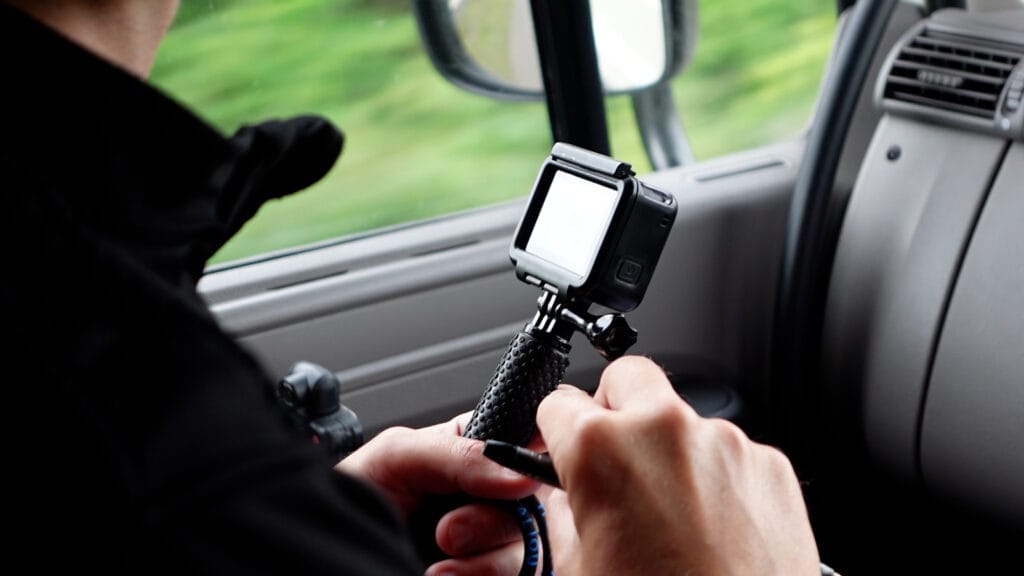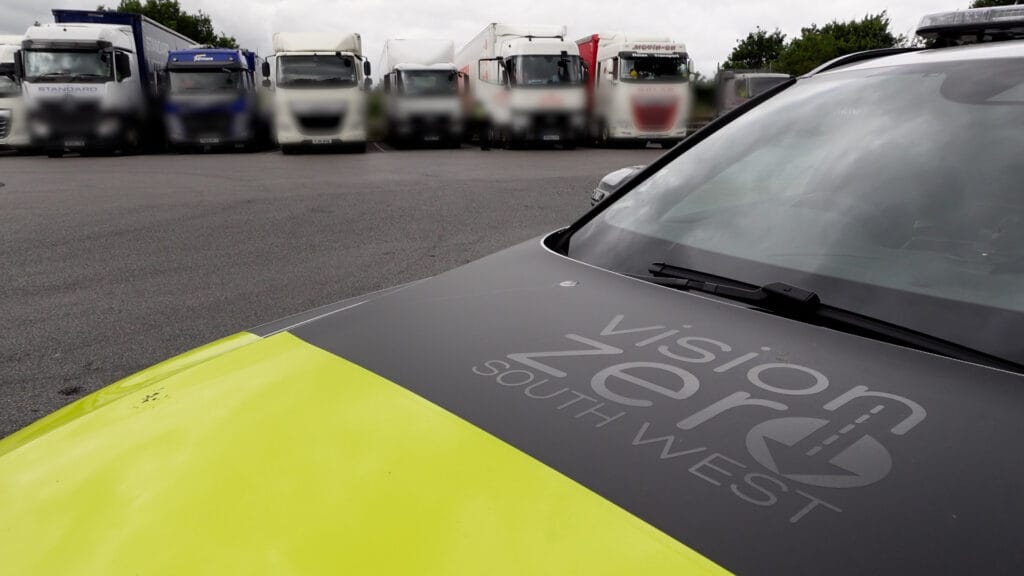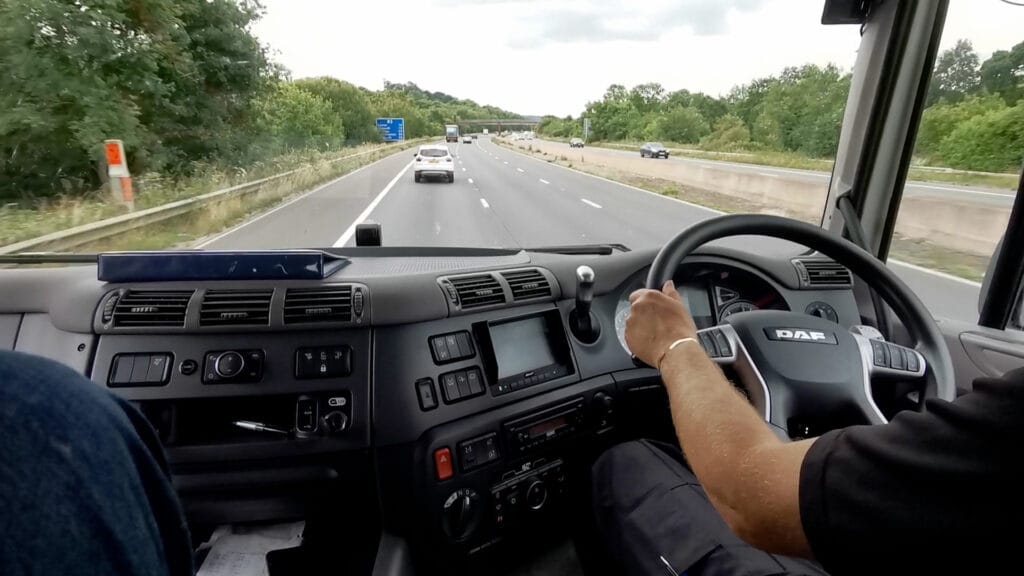Drivers using mobile phones, transporting insecure loads and even watching Netflix on an iPad have been caught during a specialist covert operation in Devon and Cornwall.
Almost 40 driving offences were detected during Operation Tramline which saw police officers team up with National Highways and use an unmarked lorry cab to spot commercial driving offences.
The lorry – which is surrounded by cameras and even has police lights fitted – gives officers an elevated view, allowing them to see into the cabs and driver seats of larger vehicles.
Roads policing officers used the lorry to patrol National routes across Devon and Cornwall, including the A38 and M5, and also to capture video footage of any offences.
Over the course of the one-week operation, the team stopped 52 vehicles and detected 38 offences. This included seven drivers using mobile phones, six driving without insurance, two people driving under the influence of drugs or alcohol and four scaffolding vehicles which were reported for being overweight and in a dangerous condition.
They also stopped one motorist who supplied false details – but was then identified through fingerprints and found to be disqualified from driving.
Superintendent Adrian Leisk, Strategic Roads Policing lead and chair of the Vision Zero South West enforcement sub-group, said: “The new mobile phone laws mean that the moment you pick up and use your phone while driving – for whatever reason – you have committed an offence.
“Using your phone behind the wheel of a car is dangerous, but when you add the sheer size and weight of an HGV, the outcome is amplified. We have seen horrific outcomes relating to distracted HGV drivers.
“Anyone caught using their phone can expect a fine and penalty points. For some professional drivers this could result in losing your livelihood. It’s just not worth it – put your phone somewhere out of sight and out of reach.”

As well as numerous driving offences, officers also detected other crime on the roads – something Supt Leisk says is vitally important in reducing crime in the region.
He added: “While the primary purpose of operations like this is to detect road traffic offences, it also allows us to monitor vehicles and utilise tools like Automatic Number Plate Recognition (ANPR) to build intelligence around organised crime groups.
“Denying criminals the use of our road network is an extremely effective way of cutting crime, whether it’s County Lines drug dealing or human trafficking – all criminals use transport and I want them to know we are watching them.
“We are planning more of these operations over the coming months, in an effort to keep the roads and communities of Devon and Cornwall as safe as possible.”
Beverley Hannah, National Highways’ South West Safety Co-ordinator, said: “The vast majority of drivers who use our roads every day behave responsibly behind the wheel, but there are some who are putting themselves and others at risk by simply ignoring the law.
“We work with our police partners across the country to tackle inappropriate driving such as using mobile phones, or not wearing seatbelts, and the HGV cabs employed as part of Operation Tramline are an important part of our commitment to tackling unsafe driving and those who take unnecessary risks with their own safety and that of others on the road.
“We want to make all of our roads safer by raising awareness and we hope this operation encourages motorists to consider their driving behaviour.”

Op Tramline – Facts and figures:
- The HGV operation was first trialled in 2015 with one HGV tractor cab and capturing over 5,000 offences
- Since March 2018 National Highways have funded three HGV tractor units for police forces to use with one in the North, Midlands and South.
- Between the launch of Operation Tramline in July 2015 and April 2022 more than 28,100 offences have been recorded.
- The most common offences were not wearing a seatbelt (8,375) and using a mobile phone (7,163).
- In total, 25,600 vehicles were stopped in Operation Tramline between July 2015 and April 2022.
- Operation Tramline is a joint initiative between National Highways and NRPOI (National Roads Policing Operations And Intelligence). We contribute around £70,000 a year for the operation and maintenance of the cabs and participating police forces provide officers, insurance and fuel to carry out the checks.

